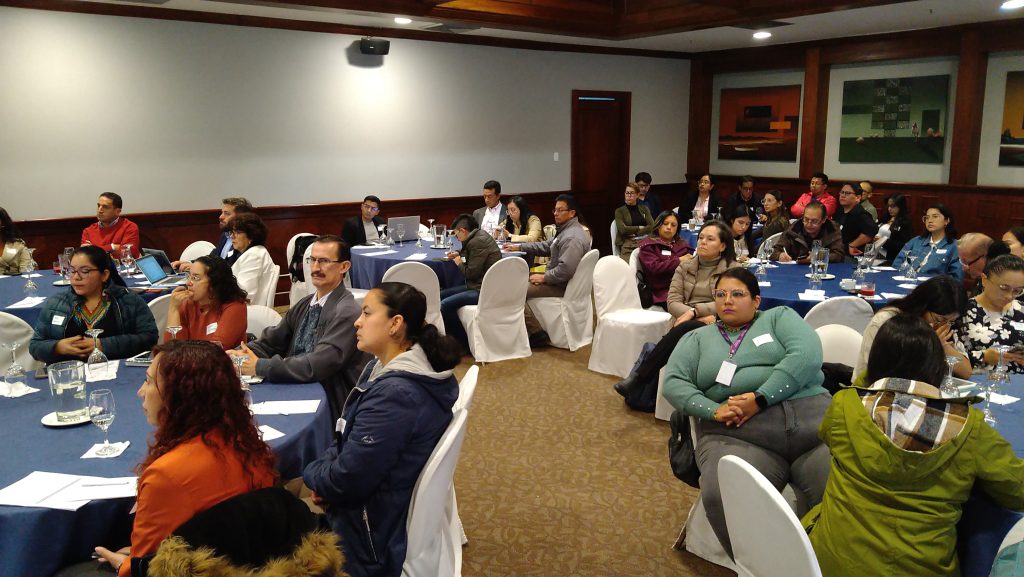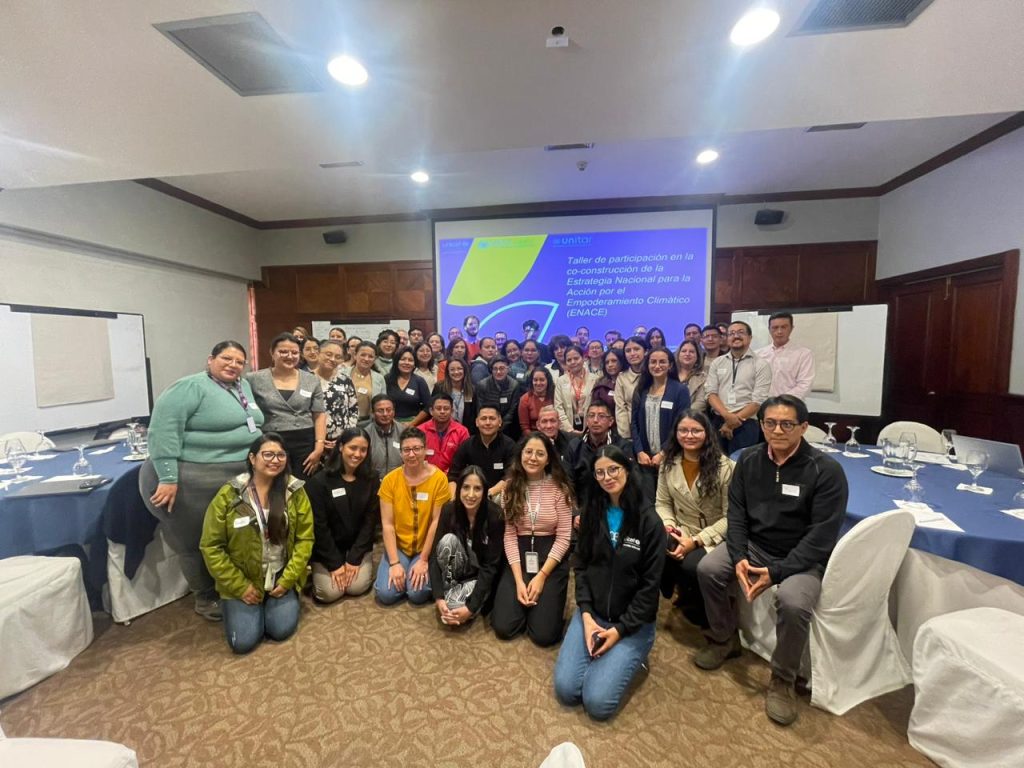In November 2024, Ecuador advanced its commitment to climate action by initiating the co-creation of its National Strategy for Action for Climate Empowerment (ENACE). A series of participatory workshops brought together a diverse array of voices from across the country, underscoring Ecuador’s dedication to building a society resilient to the impacts of climate change and actively engaged in shaping its future.
Workshops were held in Tena, Guayaquil, and Quito, representing the Amazon, coastal, and Andean regions, respectively. These gatherings were complemented by a virtual webinar and an online survey, ensuring a broad and inclusive consultation process. In total, more than 100 individuals from 70 organizations and institutions took part, spanning public and private sectors, national and international NGOs, academia, and indigenous communities. This diversity of participation highlighted the inclusive spirit of the ENACE and its focus on capturing the perspectives of all sectors of society.

Participants at the workshop in Quito.
The ENACE is more than just a strategy; it represents Ecuador’s ambition to empower its citizens with the knowledge, skills, and opportunities to contribute meaningfully to climate action. It builds upon the pillars of education, training, awareness, access to information, public participation, and international cooperation, creating a comprehensive framework that addresses both the causes and consequences of climate change. By doing so, the strategy complements existing national mitigation and adaptation plans, bridging the gap between policy and practice.
For instance, ENACE’s emphasis on education aims to integrate climate change topics into formal and informal educational systems, equipping young minds with the tools to build a better society. Its training initiatives focus on enhancing technical capacities in key sectors, fostering innovative solutions to climate challenges. Awareness campaigns will inspire behavioral changes at all levels, while improved access to information ensures that decision-making is transparent and inclusive. Public participation, particularly from historically marginalized groups such as indigenous peoples, is central to the strategy, ensuring that their voices and traditional knowledge shape the path forward. Finally, the strategy strengthens Ecuador’s ties to international networks, promoting the exchange of ideas and resources to tackle shared global challenges.
This collaborative effort, led by the Ministry of Environment, Water, and Ecological Transition (MAATE), in partnership with UNICEF and UNITAR through the One UN Climate Change Learning Partnership (UN CC:Learn), places Ecuador among regional leaders in climate empowerment. Chile, Uruguay, and Argentina have already developed similar strategies, and Ecuador is now poised to join their ranks, signaling a strong commitment to regional solidarity in addressing the climate crisis.
As the ENACE moves from consultation to drafting, the insights gathered during this process will lay the foundation for a policy that not only reflects Ecuador’s diverse realities but also serves as a model for collective climate action. By fostering a culture of empowerment and cooperation, Ecuador is taking a significant step toward a sustainable and equitable future for all its citizens.

